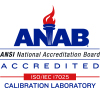
Vaccine safety is an ongoing debate around the world, but according to the American Academy of Family Physicians (AAFP), childhood immunizations have prevented 855,000 early deaths in the past 23 years. For families who can’t afford the cost, the Center for Disease Control’s (CDC) Vaccines For Children (VFC) program provides vaccinations at no cost for 54% of all children in the United States.
With this great responsibility comes strict regulations, necessary to provide maximum protection against diseases, while ensuring patient safety. VFC providers must meet certain requirements for vaccine management, including the proper storage of vaccines. Exposure to inappropriate conditions such as heat, cold or light can reduce vaccine potency.
Vaccine Storage Temperatures
Refrigerated vaccines should be stored at temperatures between 2 °C and 8 °C (36 °F and 46 °F). In its Storage Best Practices for Refrigerated Vaccines, the CDC says the ideal temperature to store vaccine at is 4.4 °C.
All vaccines except varicella-containing vaccines (varicella, zoster, and MMRV) should be stored in a refrigerator between 2° C and 8° C.
Vaccines stored in the freezer should maintain temperatures between -50 °C and -15 °C (-58 °F and +5 °F). The Storage Best Practices for Frozen Vaccines state set the freezer’s thermostat at the factory-set or midpoint temperature setting.
Varicella-containing vaccines (varicella, zoster, and MMRV) should always be stored in a freezer between 50 °C and -15 °C until reconstitution and administration. Measles, mumps, and rubella (MMR) vaccine may be stored in either a refrigerator or freezer.
Diluents should be refrigerated or stored at room temperature (no warmer than 25 °C/77 °F), but should never be frozen.
Cold Chain Management
A single exposure to freezing temperatures (0 °C/32 °F or colder) will destroy liquid vaccines that contain an aluminum agent. So, to ensure the best possible results from vaccines, temperature controlled environments must be maintained at every link in the cold chain.
Cold chain must be maintained throughout the lifecycle of the vaccine, beginning at the manufacturing plant, continuing through transport and storage at the provider’s facility, until the vaccine is administered. If the cold chain is interrupted along the way, potency could be lost completely, and the vaccines would be useless.
Temperature Monitoring
The CDC recommends the use of a continuous monitoring and recording data logger with a current and valid Certificate of Calibration Testing, as well as a backup data logger in case of a device malfunction. At the recommended minimum recording interval of at least every 30 minutes, data loggers provide detailed information on the temperature of the storage unit, including how long it may have been operating outside of the suggested temperature range.
MadgeTech data loggers are critical for vaccine safety, providing assurance that patients are protected, and facilities are guarded against the costly consequences of compromised vaccines. MadgeTech offers the VTMS wireless data logging system designed specifically to monitor vaccines. Equipped with a thermocouple, glycol bottle and customizable features including alarms and notifications, the VTMS exceeds requirements outlined by the CDC.
For more information on how MadgeTech data loggers can aid in compliance with state and CDC regulations, click here.






